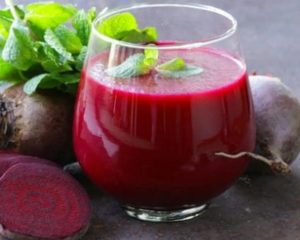
Vitamin C, also known as “ascorbic acid“, is a vital water-soluble nutrient that plays a pivotal role in maintaining human health. Its unique characteristic lies in its inability to be stored within the body, necessitating a consistent dietary intake to support overall well-being. In this article, we are going to answer different questions concerning the vitamin C.
The Historical Significance of Vitamin C
The recognition of the myriad benefits associated with consuming vitamin C-rich fruits and vegetables dates back through the annals of history. However, the true scientific understanding of this essential vitamin did not emerge until the groundbreaking year of 1933.
The Physiological Marvel of Vitamin C
Vitamin C assumes a central role in the intricate web of physiological processes within the human body. Specifically, it acts as a linchpin in the production of collagen, a fundamental protein critical for the health and integrity of various bodily tissues, including the skin, tendons, ligaments, blood vessels, bones, and cartilage. The profound impact of vitamin C on tissue growth and repair is well-documented.
Additionally, vitamin C reveals its multifaceted nature as a potent antioxidant, wielding the power to neutralize harmful free radicals that accumulate over time, accelerating the aging process and fostering conditions such as cancer, heart disease, and arthritis. Its immunomodulatory properties shine through in its potential to reduce the duration of common cold symptoms and prevent scurvy, a once-fatal ailment.
The Perils of Vitamin C Deficiency
A deficiency in vitamin C can wreak havoc on the body’s well-being. Inadequate dietary intake disrupts collagen production, triggering tissue degradation and giving rise to the debilitating health condition known as scurvy. Symptoms of scurvy encompass muscle pain, joint discomfort, fatigue, skin discoloration, swollen gums, bleeding, and breathlessness. Since vitamin C cannot be synthesized or stored within the body, daily dietary consumption stands as the sole source of this indispensable nutrient.
Although contemporary society witnesses rare instances of vitamin C deficiency and scurvy, marginalized populations with limited access to fresh produce, including the elderly, drug-dependent individuals, and those with low incomes, remain at elevated risk.
Balancing Act – Excessive Vitamin C Intake
Excessive consumption of vitamin C is generally deemed safe, thanks to its water-soluble nature, which allows the body to expel excess through urine. However, exceeding the recommended daily intake, often surpassing 2000 mg per day, may lead to unwanted side effects like increased urination, diarrhea, gas, and nausea. It’s worth noting that vitamin C can augment the absorption of iron from food, a boon for some but a concern for individuals with hemochromatosis, a condition characterized by excessive iron accumulation.
Pregnant women also warrant caution when considering large vitamin C doses, as an abrupt reduction in intake can result in rebound scurvy in the newborn.
Exploring Potential Interactions with Vitamin C
The consumption of vitamin C, while undeniably beneficial in many respects, can be a double-edged sword when it comes to its interactions with other substances. Understanding these interactions is crucial for making informed choices about your health and well-being. Here, we delve into a detailed exploration of potential interactions involving vitamin C, shedding light on their implications:
1. Aluminum Absorption: One noteworthy interaction pertains to aluminum. When vitamin C is taken concurrently with medications containing aluminum, such as phosphate binders, it can enhance the absorption of aluminum into the bloodstream. This interaction carries particular significance for individuals with kidney problems, as the accumulation of aluminum in the body can have detrimental effects on kidney function. Therefore, it is advisable for those with kidney issues to exercise caution and consult their healthcare provider regarding vitamin C supplementation.
2. Chemotherapy Concerns: Another complex interaction arises in the context of chemotherapy. There exists a legitimate concern that the concurrent use of antioxidants, including vitamin C, during chemotherapy treatments may potentially diminish the efficacy of chemotherapy drugs. While antioxidants are generally celebrated for their ability to combat harmful free radicals, their influence on chemotherapy outcomes remains a subject of ongoing research. Patients undergoing chemotherapy should engage in a thorough discussion with their oncologists regarding the risks and benefits of vitamin C supplementation to make informed decisions about their treatment plan.
3. Estrogen Levels: For individuals using oral contraceptives or hormone replacement therapy, the interaction between vitamin C and estrogen levels becomes pertinent. Vitamin C has the potential to elevate estrogen levels in the body when taken in conjunction with these medications. This interplay might necessitate adjustments in hormone therapy dosages or regimens to maintain hormonal balance. Women relying on such therapies should consult their healthcare providers to explore the implications of combining vitamin C with estrogen-based medications.
4. Protease Inhibitors: The oral administration of vitamin C might introduce a potential wrinkle in the effectiveness of protease inhibitors, a class of antiviral drugs. The impact of vitamin C on these drugs underscores the intricate nature of drug interactions and their potential consequences. Individuals prescribed protease inhibitors should seek guidance from their healthcare professionals to ensure the optimal effectiveness of their antiviral treatment.
5. Statins and Niacin: Vitamin C also has the potential to interact with medications aimed at managing cholesterol levels, such as statins and niacin. While niacin and statins are often employed to address high cholesterol, combining them with vitamin C may attenuate their effects. This interaction underscores the importance of medication management and consultation with a healthcare provider to strike the right balance between vitamin C supplementation and cholesterol management.
6. Warfarin (Jantoven): Lastly, individuals taking the anticoagulant warfarin (often marketed under the brand name Jantoven) should be mindful of their vitamin C intake. High doses of vitamin C may interfere with the anticoagulant’s effectiveness, potentially reducing its ability to prevent blood clots. Patients prescribed warfarin should collaborate closely with their healthcare providers to determine an appropriate vitamin C regimen that ensures both cardiovascular health and anticoagulation efficacy.
While vitamin C is celebrated for its myriad health benefits, it is crucial to acknowledge and navigate potential interactions with other substances carefully. Consulting with a healthcare provider is the key to making informed decisions that safeguard your health and well-being while reaping the rewards of this essential nutrient.
Summary
Vitamin C, often heralded as a remedy for the common cold, finds itself amidst a tapestry of health benefits. Yet, the scientific consensus on its efficacy remains inconclusive. While studies suggest that multiple doses of vitamin C at the onset of cold symptoms may alleviate their severity and duration, its preventive use fails to consistently reduce the frequency of colds.
When seeking dietary sources, there remains ongoing debate about the recommended daily intake, but most experts concur that an intake of approximately 45-90 mg per day suffices for the majority of populations. For those aiming to combat cold symptoms, doses typically span from 200 to 2000 mg per day, often divided into three servings.
The silver lining is that vitamin C is abundantly found in a wide array of fresh fruits and vegetables, offering a vibrant palette of choices that includes berries, broccoli, Brussels sprouts, cantaloupe, cauliflower, grapefruit, kiwi fruit, leafy greens, mango, oranges, papayas, peppers, pineapples, potatoes, tomatoes, squash, and watermelon. Maintaining a balanced diet replete with these nutrient-rich foods effortlessly ensures that most individuals meet their daily vitamin C requirements, thereby fostering robust health and vitality.




